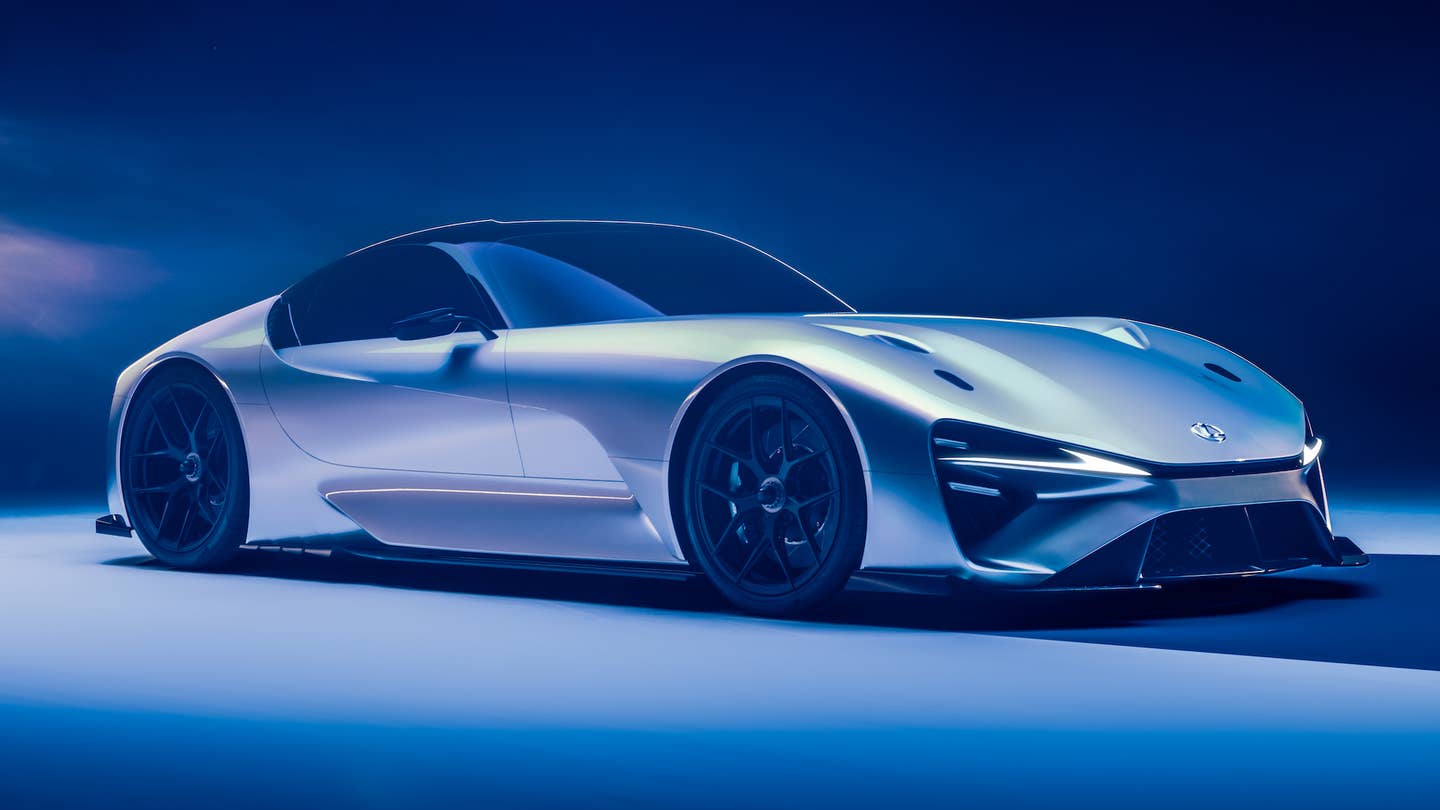It turns out the long-hailed battery tech won’t be a game-changer overnight.

Earlier this month, Toyota announced a production partnership with Idemitsu Kosan, a petrochemical company with which it will manufacture solid-state batteries. These batteries will use a “flexible, highly adhesive, and crack-resistant solid electrolyte material” made of ceramic-like sulfides to bring comprehensive improvements over lithium-ion battery chemistry, the current standard. Solid-state offers more energy density, reducing weight and boosting performance, while allowing faster charging and less risk of fire. It seems to be a win-win, so when’s it coming to cars you and I can buy?
Lexus Electrified Sport Concept. Lexus
Toyota previously promised to launch its first solid-state BEV in the mid-late 2020s, and it now has a timeline for manufacturing. The two companies will begin pilot production in financial year 2027, wherein they will produce several hundred tons of the new electrolyte. In 2030, they plan to enter a “mass production phase” generating several thousand tons annually—but if you know your EV batteries, you’ll know that’s not exactly a lot.
Lexus LF-ZC Concept. Lexus
While it’s common for new technologies to debut on expensive models and make their way downward with refinement, Toyota’s production capacity makes clear this won’t happen any time soon. Even a decade out, it’s unlikely many EVs will be powered by these promising new batteries.
Got a tip or question for the author? You can reach them here: james@thedrive.com


